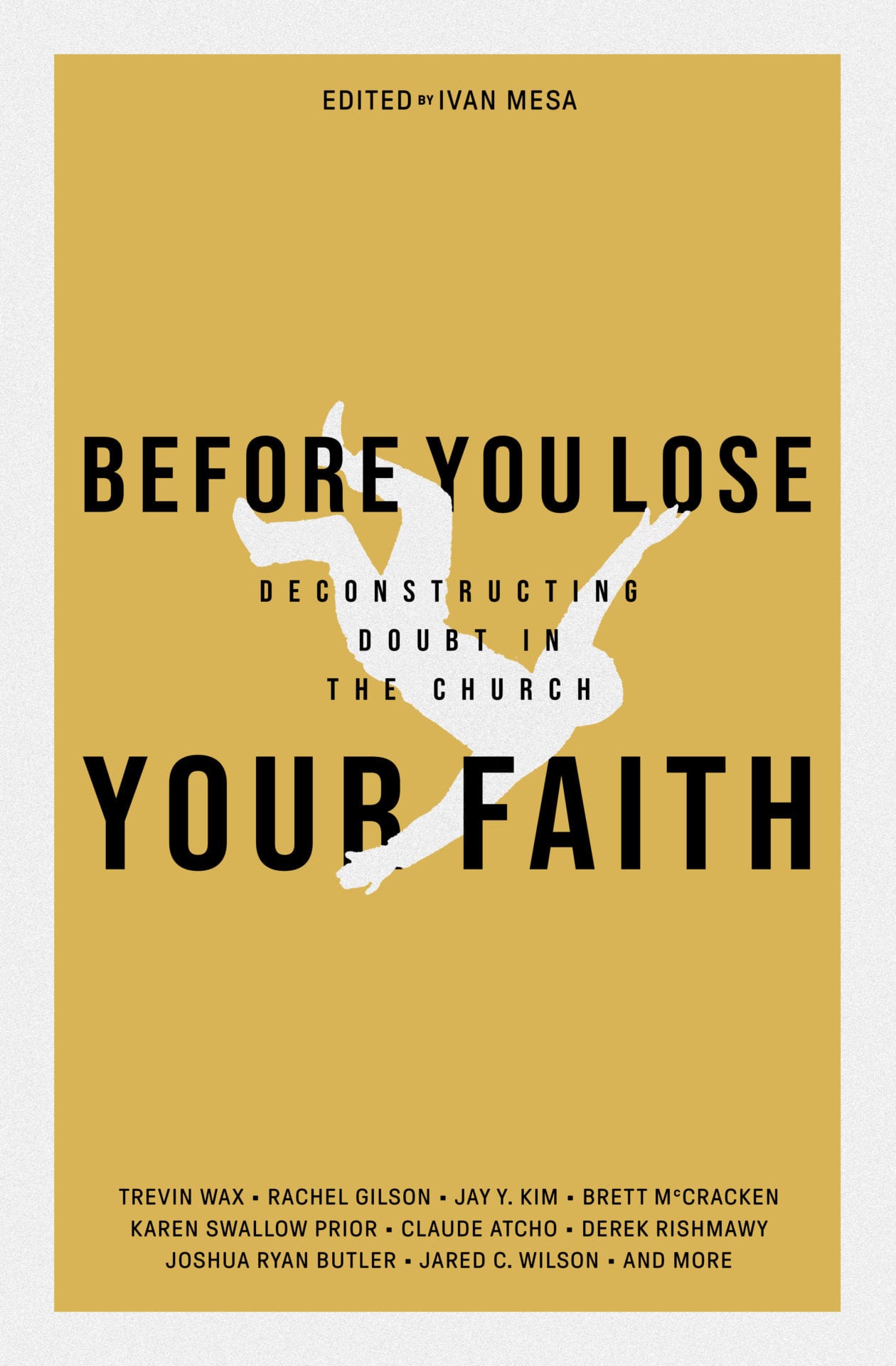Imagine you just learned that your body is battling a life-threatening disease. Life as you know it will change forever. As you try to comprehend everything happening inside you, a friend says, “You’re a good person. You don’t deserve this.”
Or imagine that you’ve experienced a great loss. Your heart aches with grief. The pain is overwhelming, unlike anything you’ve ever known. In an attempt to comfort you, someone says, “This will turn out for your good.”
These are real statements people have heard from well-meaning people in response to suffering. We all know the awkwardness of trying to think of something to say to someone who is suffering. We’ve probably even heard similar statements in response to our own suffering.
As believers in Jesus, we are charged to walk alongside each other in our pain. We are called to mourn with those who mourn (Rom. 12:14). We are to bear one another’s burdens (Gal. 6:2). We are to be compassionate, gentle, and patient with each other (Eph. 4:2; 1 Pet. 3:8). Yet sometimes, in our efforts to reach out to a suffering friend, we unwittingly hurt the very ones we want to help. We might hurt them by what we say. Other times we hurt them when we don’t say anything at all.
Silence can be uncomfortable, so we try to fill it and end up using some cliché that sounds good but ends up adding more wounds to the already pierced heart. Or maybe the suffering our loved one is experiencing threatens our view of God in some way. So we say something to defend that view, more to convince ourselves than anything else. But what we say wounds them further.
Or sometimes, a friend or loved one suffers in a way we don’t understand. It’s not something we have experienced, so we think we have nothing to offer them. We end up not saying anything at all. Or perhaps their pain frightens us, so we avoid being around them. Not saying anything can be equally hurtful.
Basic Principles
What should we do when a friend or loved one is suffering? How can we love them, support them, and journey with them in their suffering in a way that is encouraging and helps rather than hurts them?
Job endured intense suffering, a kind of suffering most of us will never know. In the blink of an eye he lost all his children, his wealth, and his health. Job’s story teaches us many things, most specifically about God’s providential control over suffering. But it also reveals to us a few things about how we respond to suffering. How should we respond? Here are a few basic principles.
Be there. We often think that we need to have something important and inspiring to say to our friends, when sometimes the best thing we can do is just be present. As Romans 12:15 says, we ought to “mourn with those who mourn.” When Job experienced his traumatic loss, his friends came and sat with him in silence for seven days (Job 2:11-13). They entered his grief and sorrow, literally sitting in the customary dust and ashes that physically represented the loss he experienced. A friend who has endured great suffering told me that it was helpful for her when people came by to visit. Being surrounded by people who love and care for us can be comforting. However, our visits should come with no expectations and be flexible. There may be times when our physical presence is not helpful. If so, we need to be prepared to leave and try again another time.
Don’t say unkind things. We often say things with good intentions that end up being unkind. Some of our statements are about as useful as the words to the 80s song “Don’t Worry, Be Happy.” Much of the book of Job documents the unhelpful things Job’s friends said to him after that initial week of silence. They were convinced he must have done something wrong that made God want to punish him. Each friend took turns, pushing and prodding Job to make him figure out what he had done wrong. Job’s friends were speaking out of their misguided theology that believed that if we do good things, we’ll be blessed, and if we do wrong things, we’ll be punished. While that is sometimes the case, it’s not a rule. In fact, Jesus’s death on the cross speaks loudly against such theology. Many Christians think that God only desires for us to be happy. They think he wants us to have the good life here on this earth. So when trials and suffering come, they struggle to fit it into their theology. Sometimes, even if a statement comes from Scripture, such as “God will use this for your good,” it’s not the time to say it. The best thing we can do is pray for wisdom and ask God to help us speak just the right thing at the right time.
When it comes time to speak, speak the truth. There will come a time when your friend is ready to talk about suffering. He or she will want to share the thoughts, feelings, and questions that have persisted since the trial began. When that time comes, speak gospel truth. This is the hope Job had: “For I know that my redeemer lives, and at the last he will stand upon the earth” (Job 19:25). Encourage your friend with the love of Jesus. God has not abandoned your friend; he is the only sure refuge and strength. Point your friend to the man of sorrows who was well acquainted with grief. Jesus knew the sting of rejection. He knew temptation, shame, loss, and heartache. Jesus came to bear all our sorrows and griefs, our sin and shame.
Show your love through actions. When a person is suffering, even the little things can overwhelm; we can pick up the slack. Make meals, take phone messages, watch their children, run errands, mow the grass. I asked a friend what helped her most as she faced a hard battle with cancer, and she said it was the notes, texts, and even books people sent her in the mail that meant the most to her. Another friend who lost a spouse shared with me that it was helpful when a friend answered all the phone calls and took messages. When we invest our time to do even little things for someone who is hurting, it speaks volumes.
Don’t rush the process. After a certain amount of time has passed, we might think our friend should have moved on from grief or sorrow. In the story of Job, his wife told him, “Curse God and die.” She just wanted him to get over it. But some trials linger with people for much of their lives. We need to stick with them for the long haul. Sometimes our loved one may seem to be doing well, and then something triggers the pain and grief all over again. We need to remember the great patience and forbearance God has for us and provide the same for our friends. Anniversaries of a loss or tragedy in someone’s life are significant. One friend said that sending a card to someone on the anniversary of their loss is helpful. It shows that you have not forgotten. We need to be aware that the wounds may not be seen on the outside even as they fester on the inside. Even after time has passed, those wounds may shrink a bit, but they are still there, and they still hurt.
Do you have friends or other loved ones in the midst of a great trial? Pray and consider the ways you can mourn alongside them, helping without hurting.
Free Book by TGC: ‘Before You Lose Your Faith’
 Many young people are walking away from Christianity—for reasons ranging from the church’s stance on sexual morality, to its approach to science and the Bible, to its perceived silence on racial justice.
Many young people are walking away from Christianity—for reasons ranging from the church’s stance on sexual morality, to its approach to science and the Bible, to its perceived silence on racial justice.
TGC’s book Before You Lose Your Faith: Deconstructing Doubt in the Church is an infusion of hope, clarity, and wisdom in an age of mounting cynicism toward Christianity.
For anyone entering college or the workplace and looking for a timely reminder of why Christianity is good news in a skeptical age, make sure to get your FREE ebook Before You Lose Your Faith today!


































